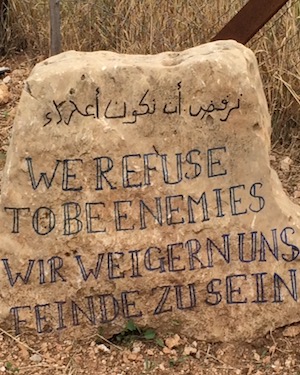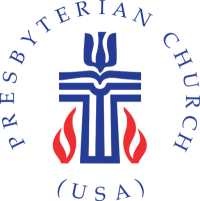
There can be no doubt that Presbyterians in the United States have often supported the nation’s resort to arms in time of war. Indeed, Albert Curry Winn, one-time moderator of the “Southern” Presbyterian Church in the United States (PCUS), once referred to that denomination as the “most hawkish” in the country. However, Presbyterians also understood military action as the failure of alternative means to settle conflict between nations. Presbyterians, in their denominational pronouncements and actions, have consistently rejected any definition equating “national security” with military preparedness and the threat of military action. This article selectively surveys the history of Presbyterian approaches to international security and peacemaking.
A number of organizations with international peace as their aim emerged in the nineteenth century, and in the years following the Civil War there was an international push for the arbitration of international disputes that resulted in the 1899 meeting of The Hague Conference, which founded the World Court. The PCUS joined that effort when the 1890 General Assembly approved a resolution from East Hanover Presbytery which included two petitions, one to other denominations and one to the “Several Governments of the Christian Nations of the World.” The first asserted that large standing armies and navies threaten world peace and “grievously burden” citizens of those countries. “Whilst some international differences are settled by peaceful arbitration, this is not recognized as the only and final resort for the adjudication of these questions. War and bloodshed are still the means to which Christian nations look to right their wrongs.” The petition to governments made the same general point, but also stood in the long U.S. tradition of opposition to any compulsory military service on the grounds that it is injurious to democracy, leads to the oppression of peoples, and equals involuntary servitude.
The committee appointed by the General Assembly to pursue this project communicated with other denominations, which led to conferences to organize the appeals to governments and to mobilize public opinion for international arbitration. Both the Presbyterian Church, U.S.A., and the United Presbyterian Church committed to the project and promoted it. On December 29, 1898, the project culminated when a delegation presented President William McKinley with two petitions for arbitration; the first originated with 145 communions from the global church, and the second with the Pan-Presbyterian Alliance. Presbyterians in the United States and across the world had taken a stand against militarism as a means of conducting foreign policy and settling disputes between nations. Although one hesitates to draw a direct connection, this movement helped shape the atmosphere in which the League of Nations came into existence following World War I.
___________________________________________
Basing diplomatic, economic, and political practice on the concern only for the United States’ self-interest, and acting without regard for or consultation with other nations rends the fabric of the world community and breeds conflict.
___________________________________________
Aside from the presence of nuclear weapons, the greatest national security discussion following World War II pertained to the question of militarism in our national life. Some proposed the postwar peacetime extension of the selective service system, as well as universal military training—that is, that every young man in the United States would spend some specified time in military instruction. There was significant opposition to both proposals within Protestantism, for there had been a long tradition in the United States of suspicion of a strong military. The war, and the emerging Cold War with Communism, led many to a greater reliance on military preparedness—thus, these two proposals.
Many Presbyterians joined in the general Protestant resistance to universal military training. Jerrold Lee Brooks observes: “They believed that the less the armed forces had to do with civil affairs the better the prospects for the nation’s future.” Brooks has argued that it was in the context of this fear of undue military influence in the U.S. that Presbyterians opposed military training for all young men and peacetime conscription. The movement of military personnel into civilian public office and the use of defense funds for advertisements supporting draft legislation alarmed the churches, for many believed that military people would eventually seek military solutions to problems as they gained influence over government decision-making.
Presbyterians responded to the heightened national security fears of the Cold War with calls to practice cooperation at home and abroad, counteracting anxiety to build security. Presbyterians rejected the tactics of the House Un-American Activities Committee and the hearings conducted by Senator Joseph McCarthy, both of which played on fear and deprived the accused of civil and legal rights. In 1953 the General Council of the Presbyterian Church, U.S.A. issued a letter opposing McCarthyism and its methods of combating domestic communism. The 1954 General Assembly endorsed the epistle. With words that are strikingly relevant in the current national context, the letter argued that security must be founded on truth. It contended that, under McCarthyism, “falsehood is frequently preferred to fact if it can be shown to have greater propaganda value. . . . [I]f what is true ‘gives aid and comfort’ to our enemies, it must be suppressed. Truth is thus a captive in the land of the free. At the same time, and for the same reason, great words like ‘love,’ ‘peace,’ ‘justice,’ and ‘mercy,” and the ideas which underlie them, are become suspect.” The Council affirmed God’s sovereignty in world affairs, which meant that humans need more than economic and social systems for fulfillment. Communism was doomed to fail, and the United State’s best course of action was to meet and negotiate with Communist leaders, admitting our own faults and injustices, for the cause of peace. The letter concluded by stating that the principles of truth and justice had made the nation great, and such “loyalty alone can keep it great and ensure its destiny.”
The PCUS Board of Church Extension had made a similar argument in its 1951 report, “National Security and the Christian Message.” The board noted that internal problems such as racism, materialism, and fear and hysteria campaigns only weakened the United States. The report argued for appropriate military preparedness. However, support for authoritarian regimes only built insecurity. The U.S. would be better served by promoting civil rights, justice, and economic growth for all people in impoverished nations and correcting its own problems; that was the path to greater security and resistance to Communism.
___________________________________________
[W]e should work diligently against any place for the militarization of domestic life—including the militarization of police forces, as witnessed in places like Ferguson, Missouri.
___________________________________________
The most complete statement by Presbyterians regarding international relations and militarism came in the United Presbyterian Church, U.S.A.’s “Peacemaking: The Believer’s Calling,” adopted by the 1980 General Assembly—and the PCUS in 1981. “Peacemaking” linked the concepts of shalom and justice in both the church’s primary mission and international relations. Many had become convinced that the oppression of people in the nations of the world created instability, that international economic policies could contribute to or hinder the health of nations individually or collectively, and that the United States’ foreign policy of support for reactionary regimes perpetuated unjust situations. “We know that there can be no national security without global security and no global security without political and economic justice,” the paper argued. “We know that peace cannot be achieved by ending the arms race unless there is economic and political justice in the human family. Peace is more than the absence of war, more than a precarious balance of powers.” In “Peacemaking”, the soon-to-be-reunited UPCUSA and PCUS acknowledged that questions of national security, and therefore militarism and war, were bound to the entire web of socioeconomic structures of the world. The repudiation of militarism, the charge of the inadequacy of traditional means of seeing and approaching international relations, and the call to support the cause of the oppressed manifest that view.
What can we take from this brief survey as we think about the church and the question of militarism in our national life? First, we should be hesitant regarding any military role in the United States’ conduct of international affairs. The consequences of precipitous military action, such as we conducted after the September 11, 2001 terrorist acts, are long-lasting and can be devastating to the nation’s part in world affairs. By the same token, we should work diligently against any place for the militarization of domestic life—including the militarization of police forces, as witnessed in places like Ferguson, Missouri. Second, we must reject unilateralism in the conduct of foreign affairs. Bolstering the work of entities such as the United Nations, NATO, and the Organization of American States is paramount. Basing diplomatic, economic, and political practice on the concern only for the United States’ self-interest, and acting without regard for or consultation with other nations rends the fabric of the world community and breeds conflict.
The tradition of Presbyterianism in the U.S. does not reject all use of military power, but it does strongly affirm civilian control of the armed forces and reject militarism as a determining force in national life, domestically and internationally.
In these days, that is a tradition worth remembering and affirming.
[1] Albert Curry Winn, “Talk for Peace Breakfast,” June 1, 1980, Henry V. Lofquist Files, Presbyterian Historical Society.
[2] Minutes of the General Assembly of the Presbyterian Church in the United States (Richmond, Va.: Presbyterian Committee of Publication, 1890), 19. Hereafter General Assembly minutes will appear as GAM, accompanied by the appropriate denominational indicator—for instance, PCUS GAM.
[3] See Rick Nutt, “To End War: Presbyterians in the South and International Arbitration, 1890-1898,” American Presbyterians 70 (Fall 1992): 188-190.
[4] Ibid., 190-197.
[5] One remembers, of course, that President Wilson was a child of a southern Presbyterian manse.
[6] Jerrold Lee Brooks, “In Behalf of a Just and Durable Peace:The Attitudes of American Protestantism toward War and Military-Related Affairs Involving the United States, 1945-1953,” (Ph.D. Dissertation, Tulane University, 1977), 131.
[7] In a two-part series in the Presbyterian Outlook, Walter Sikes held that universal military training would be a “revolutionary departure” from the nation’s practice.” See Rick L. Nutt, Toward Peacemaking: Presbyterians in the South and National Security, 1945-1983 (Tuscaloosa, Al.: University of Alabama Press, 1994), 40.
[8] Cited in Rick Nutt, “For Truth and Liberty: Presbyterians and McCarthyism,” Journal of Presbyterian History 78 (Spring 2000): 60.
[9] Ibid. For the entire letter, see PCUSA GAM, 1954, 256.
[10] Board of Church Extension, “National Security and the Christian Message,” Annual Reports of Assembly Agencies (N.P., 1951), 87-88.
[11] “Peacemaking: The Believer’s Calling,” PCUS GAM, 1981, 134.
Editor’s Note: Although many different names of Presbyterian denominations are used in this article, nearly all of them are forebears to the current Presbyterian Church (U.S.A.)
The Presbyterian Church, U.S.A. (PCUSA) existed in that form from 1789 to 1958. In 1958, the PCUSA merged with the United Presbyterian Church of North America (UPCNA) to become the United Presbyterian Church in the United States of America (UPCUSA). The UPCUSA, in turn, merged with the Presbyterian Church in the United States (PCUS) to become the Presbyterian Church (U.S.A.), or PC(USA).
***
Author Bio: Rev. Dr. Rick Nutt is a Professor of Religion, Emeritus at Muskingum University. He was a delegate to the 223rd General Assembly of the Presbyterina Church (U.S.A.) and now serves on the Advisory Committee on Social Witness Policy.






Unbound Social